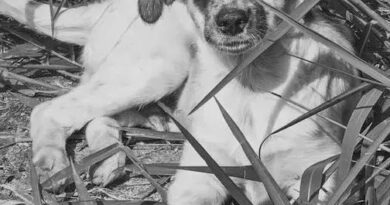What is Selection
What is Selection in Dog Breeding?
Selection in dog breeding refers to the process of choosing specific dogs to mate based on desirable traits and characteristics. This practice is essential for producing puppies that meet certain standards, whether for companionship, work, or show purposes. Breeders often focus on physical attributes, temperament, and health to ensure that the offspring inherit the best qualities from their parents. Understanding the principles of selection is crucial for anyone involved in dog breeding.
The Importance of Genetic Selection
Genetic selection plays a vital role in determining the future of dog breeds. By selecting dogs with superior genetics, breeders can enhance desirable traits while minimizing hereditary health issues. This process involves evaluating the genetic background of potential breeding pairs, including their lineage and any known health problems. The goal is to create a healthier, more robust breed that can thrive in various environments and situations.
Types of Selection Methods
There are several methods of selection used in dog breeding, including natural selection, artificial selection, and selective breeding. Natural selection occurs when dogs with advantageous traits are more likely to survive and reproduce in their environment. Artificial selection, on the other hand, is a human-driven process where breeders choose specific dogs to mate based on predetermined criteria. Selective breeding combines both methods, allowing breeders to enhance specific traits while maintaining the overall health of the breed.
Evaluating Traits for Selection
When considering what is selection in dog breeding, it is essential to evaluate various traits that contribute to a dog’s overall quality. These traits can include physical characteristics such as size, coat type, and color, as well as behavioral traits like temperament, intelligence, and trainability. Breeders must carefully assess these traits to ensure that they align with the breed standard and the intended purpose of the dogs being produced.
Health Considerations in Selection
Health is a critical factor in the selection process. Responsible breeders prioritize the health of their breeding dogs by screening for genetic disorders and conducting health tests. This practice helps to identify potential health issues that could be passed on to the puppies. By selecting healthy dogs for breeding, breeders can reduce the risk of hereditary diseases and improve the overall well-being of the breed.
Ethical Considerations in Dog Selection
Ethics play a significant role in the selection process. Breeders must consider the welfare of the dogs involved, ensuring that they are not subjected to harmful practices or conditions. Ethical selection involves prioritizing the health and happiness of the dogs over profit or competition. This approach fosters a responsible breeding environment that benefits both the dogs and their future owners.
Impact of Selection on Breed Standards
Selection has a profound impact on breed standards, which are established guidelines that define the ideal characteristics of a breed. Through careful selection, breeders can influence the direction of a breed’s development, ensuring that it remains true to its original purpose and appearance. This process requires a deep understanding of the breed’s history and the traits that are most valued by enthusiasts and organizations.
Challenges in the Selection Process
Despite its importance, the selection process is not without challenges. Breeders may face difficulties in finding suitable mates that meet their criteria, and there is always the risk of unintended consequences, such as inbreeding or the emergence of new health issues. Additionally, breeders must stay informed about the latest research and trends in genetics to make informed decisions during the selection process.
The Future of Selection in Dog Breeding
As the field of genetics continues to evolve, the future of selection in dog breeding is likely to change as well. Advances in genetic testing and understanding of canine genetics will enable breeders to make more informed choices, potentially leading to healthier and more diverse breeds. The integration of technology and science into the selection process promises to enhance the quality of dog breeding and the well-being of future generations of dogs.



